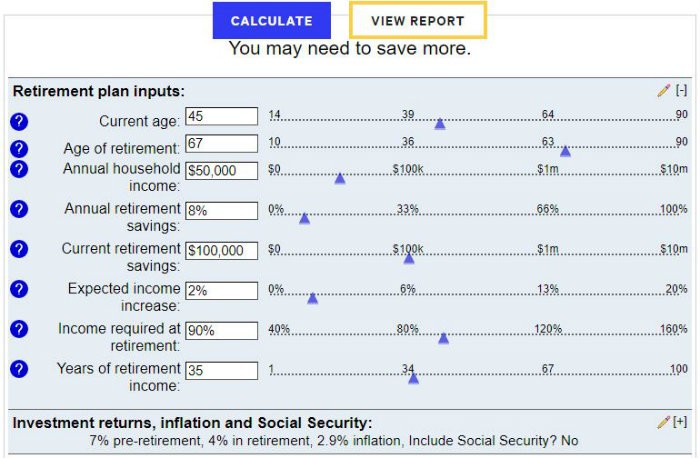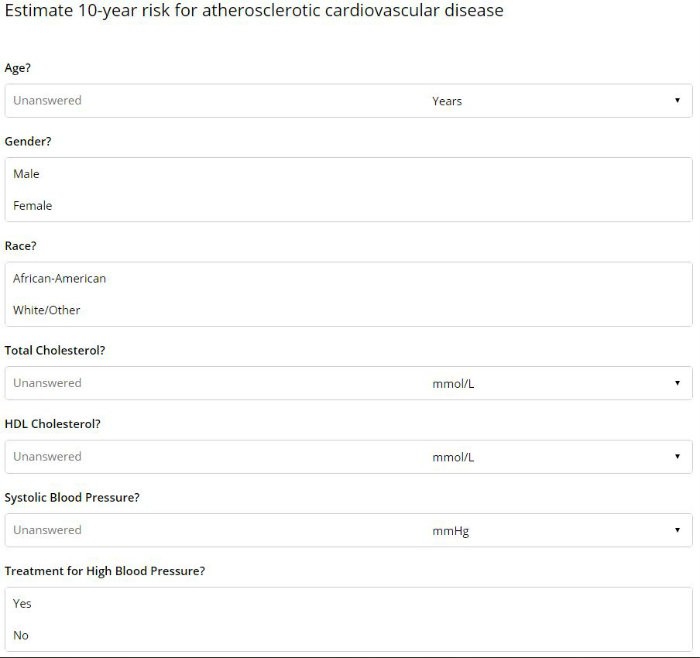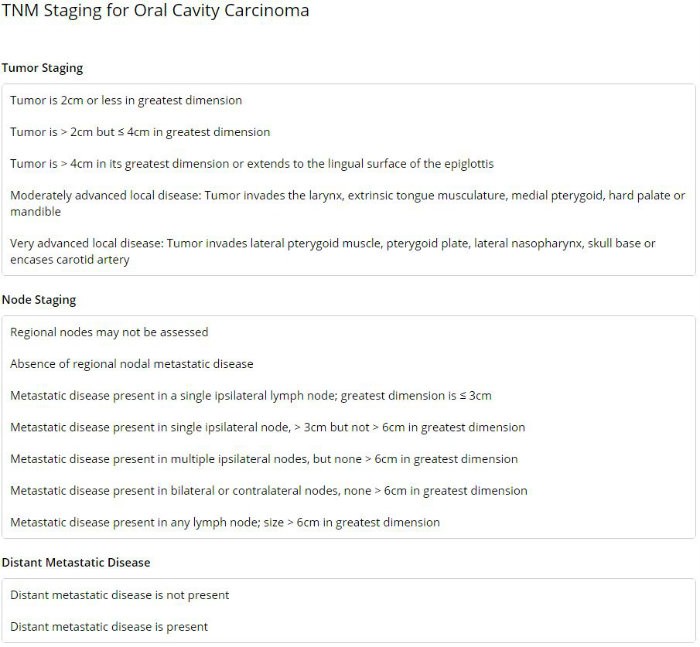5 life calculators every person should use

No matter what stage of life you’re in, it’s always a good idea to plan for the future. Setting goals and sticking to them is one key to success.
Whether you’re near retirement and wondering how much money you’ll actually need to live comfortably for the rest of your life, or just starting out and thinking about the well-being of your family, you’re going to need a winning strategy.
The good news is you don’t have to just wing it these days. There are plenty of online tools that can help.
That’s why we’re going to talk about some of the best life calculators that everyone should be using. They’ll help give you a clearer picture of not only your finances but also your health.
Some people are a bit gun-shy at using tools like this because they’re afraid of what they’ll find out. Don’t be! It’s better that you know what’s going on so you can make changes if necessary.
3 financial calculators you need right now
What’s your net worth?

Most people have no idea what their net worth is. But that’s a mistake.
It’s important because that gives you a snapshot of your financial situation right now. That will help you determine the best course of action for future financial stability.
This Net Worth calculator from Bankrate is a simple way to calculate the value of all your assets, minus the total of all liabilities. But it doesn’t stop there. It also estimates how your net worth could grow or decline over the next 10 years.
Begin by entering your assets. Include things like what your home is valued at along with other real estate you might own. Then it’ll ask for values of personal property, investments, cash on hand and what is in your checking and savings accounts.
Then you’ll enter your liabilities. It’ll ask for your home and other mortgage principles. Next, enter other loans and debts, like auto, student loans and credit card debt.
Once all the data is entered, click view report and you’ll see a detailed description of your current net worth and an estimate of what it will be after 10 years.
Secure your retirement

Do you know what it takes to be financially secure at retirement? Of course for something this important, you’re going to want to visit with a financial planner.
But this online Retirement Calculator can give you an idea of what you’re looking at before taking that step. It’s a nice tool to help come up with a retirement plan.
Use it to view your retirement savings balance and calculate your withdrawals for each year. Social Security is determined on a sliding scale based on income.
Get started by entering your current age, the age at which you plan to retire and your current annual household income. It’ll ask you other things like current and annual retirement savings, expected income increases, and the percentage of income you’ll need at retirement.
Once all that data is entered, click view report and you’ll have a good idea of where you sit and where you’re headed.
Plan for your children’s future

As a parent, you’re going to want to see your kids go to college. Their success in the future economy depends upon it.
But, have you taken a look at how much it’s going to cost to send just one child to college when it’s their time? Brace yourself, the numbers are constantly going up and are quite frankly out of control. That’s why it’s important to start saving early, and not wait until the last minute.
This College Savings Calculator from Schwab.com will give you an idea of what you’re facing. Just answer a few questions about your kid’s potential college plans and your savings goals, and get an estimate of how much you should try to save.
After entering their age, how much you plan to contribute each month or year along with the current savings balance, you’ll see a funding summary. It gives you an estimated total education cost, how much the amount you’re saving currently will cover, and how much more money you’ll need to add per month to pay for the entire estimated total.
2 health calculators (and then some)
Kim turned us on to this very cool website that has a slew of health calculators that help you assess your health for things like addiction, cardiovascular disease, mental health disorders, cancer and planning for a baby. We’ll look at a couple here.
Keep in mind health calculators like these can give you a general idea of your health, but you should always consult a physician to discuss concerns.
Check your risk of heart disease or stroke

This ACC/AHA CV Risk Calculator from qxmd.com is used by health care providers to estimate 10-year risk for atherosclerotic cardiovascular disease (ASCVD), defined as coronary death or nonfatal myocardial infarction, or nonfatal stroke, based on the Pooled Cohort Equations. It assumes that you have not had a prior heart attack or stroke.
Estimates are based on data from multiple community-based populations and are applicable to African-American and non-Hispanic white men and women from the ages of 40 through 79. Unfortunately, there isn’t enough data to reliably predict risk for those less than 40 or greater than 79.
Information needed to come up with the estimate includes age, sex, race, total cholesterol, HDL cholesterol, systolic blood pressure, blood pressure-lowering medication use, diabetes status and whether you’re a smoker or not.
If you don’t know your total or HDL cholesterol, get the numbers from your most recent physical. Most doctors let you access that type of information online these days. And again, if you are concerned there is a problem see a doctor ASAP.
Oral cancer

According to the American Cancer Society, cancer begins when cells in the body start to grow out of control. Cells in nearly any part of the body can become cancerous and can spread to other parts of the body. Oral cavity cancer, or just oral cancer, starts in the mouth.
The Oral Cavity Carcinoma tool may be used to determine tumor-node-metastasis or “TNM” staging of squamous cell carcinoma of the oral cavity.
Possible signs and symptoms to watch for include a sore in the mouth that doesn’t heal, pain that doesn’t go away, a lump or thickening in the cheek, a white or red patch on the gums, tongue, tonsil, or lining of the mouth, sore throat or feeling that something is caught in the throat and won’t go away and more.
Staging information may help determine the best therapeutic options, but overall health and many other factors play an important role in determining the best treatment options for and prognosis for any cancer patient.
Those are just a couple of tools found at qxmd.com, but there are tons more. Tap or click here to visit its home page and see what other helpful tools you can find.
